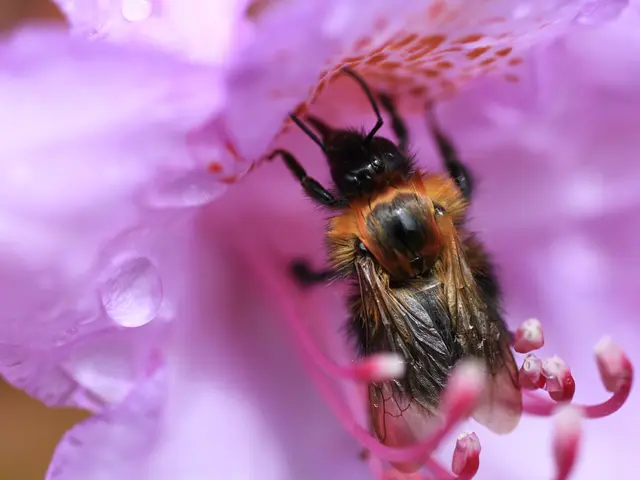Examining Essential Oils' Potential for Alleviating Cough Symptoms
Ooof, that persistent hacking cough can drive you and those around you bonkers! Yes, coughing is a natural part of the body's defense system, helping to get rid of mucus and irritants. But let's face it, we'd rather it clear up faster, right?
Many people turn to essential oils as a natural remedy for coughs. But remember, just because something is 'natural' doesn't always make it safe. So, let's talk about the lowdown on essential oils for coughs with some insights from wellness and preventive medicine physician, Jessica Ruff, MD.
Essential Oils for Coughs: What You Need to Know
"The scientific evidence is scant to support the effectiveness of essential oils for coughs or any medical purpose," advises Dr. Ruff. There are several unknowns, including the lack of regulation from the FDA. So, it's impossible to know if the oil you're using is as powerful and concentrated as the label claims.
If you still want to give essential oils a try for your hacking cough, limit your choices to eucalyptus oil or peppermint oil. These oils are well-known for their ability to open nasal passages and help with breathing, which may, in turn, help relieve coughing.
- Eucalyptus oil might have anti-inflammatory properties that ease sinus congestion.
- Peppermint oil contains menthol, which helps open stuffy noses.
Who Should Avoid Essential Oils for Coughs?
Because of the lack of safety data, certain individuals should steer clear of essential oils. These include infants and young children (avoid using essential oils on children under 6 years old), people undergoing surgery (eucalyptus oil can affect blood sugar levels during and after surgery), and pregnant or breastfeeding women (there's no safety data on using these oils during pregnancy or breastfeeding).
How to Use Essential Oils for Coughs
If you're set on using essential oils for a cough, remember that they are highly concentrated and must be diluted with a carrier oil, like coconut oil or avocado oil, or water before use.Mixing essential oils with a carrier oil or water helps create a less strong, less reactive oil, lowering the risk of complications. Keep in mind that the number of drops of essential oil to use depends on the oil's concentration, which varies and might not always be accurate on the label.
Risks of Essential Oils for Coughs
Essential oils can have severe and sometimes life-threatening complications, especially in their full-strength form. Keep all essential oils out of children's reach. Risks include:
- Breathing problems: In young children, especially infants, exposure to peppermint and eucalyptus oils might cause breathing problems.
- Fatal poisoning: Essential oils can be deadly if swallowed. It's safest not to ingest any essential oils unless recommended by your doctor.
- Seizures: Exposure to eucalyptus and peppermint oil can cause seizures and neurological issues in infants and young children.
- Skin burns and rashes: Even after dilution, essential oils can irritate the skin when applied topically.
- Allergic reactions: You may find that you're allergic to certain essential oils. It's essential to perform a patch test before using a new oil to avoid allergic reactions or skin irritation.
Safer Alternatives to Essential Oils
If you're looking for natural alternatives to essential oils, Dr. Ruff recommends safer options such as honey for individuals age 1 and older or peppermint tea, which contains small amounts of peppermint oil and is safe to consume. "Just because something is natural doesn't mean it's good for you – always approach with caution," she advises.
- In the realm of health-and-wellness, some individuals may opt for essential oils in an attempt to alleviate cough symptoms, but it's important to note that the scientific evidence supporting their effectiveness is limited.
- For those considering essential oils for their cough, Dr. Ruff advises that they should primarily stick to eucalyptus oil or peppermint oil, as these oils are known for their nasal passage-opening properties and potential to help relieve coughing.
- When using essential oils, it's essential to remember that they are highly concentrated and must be diluted with a carrier oil or water to create a safer form. Failure to dilute these oils could lead to severe complications, including skin burns, allergic reactions, or even fatal poisoning.
- In the arena of therapies-and-treatments, there are several natural alternatives to essential oils that are considered safer. For instance, Dr. Ruff recommends honey for those aged 1 and older, or peppermint tea, which contains a safe amount of peppermint oil and can be consumed without worry, heeding her advice that: "Just because something is natural doesn't mean it's good for you – always approach with caution."








